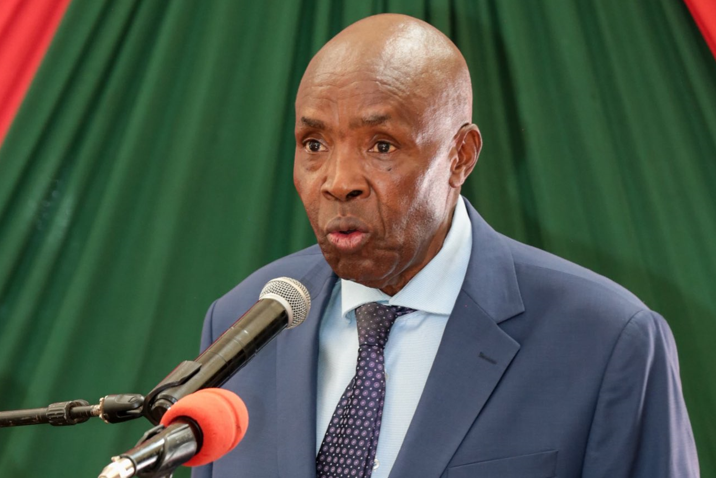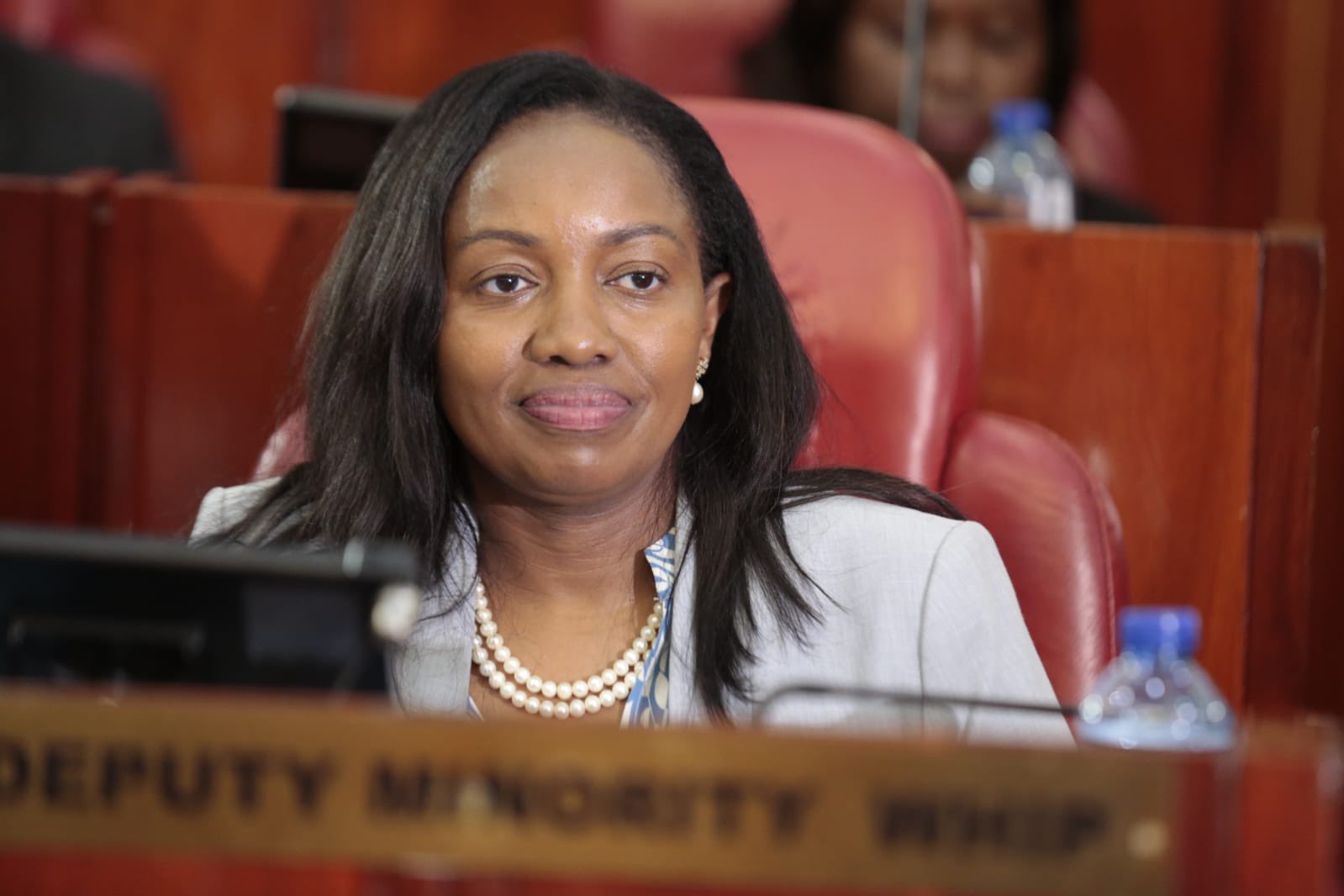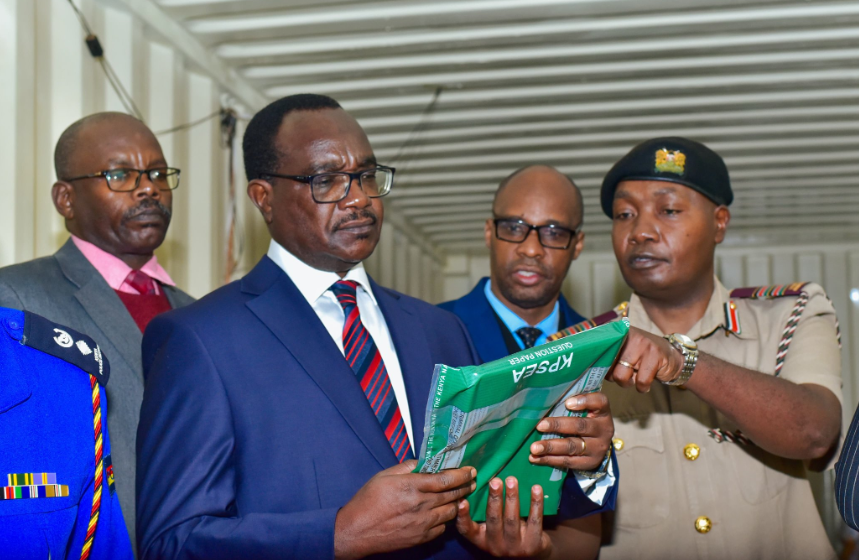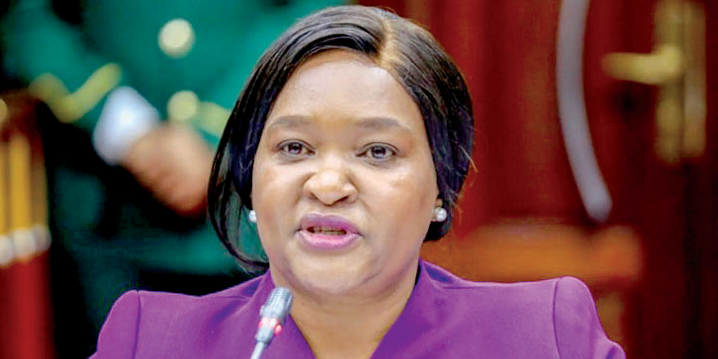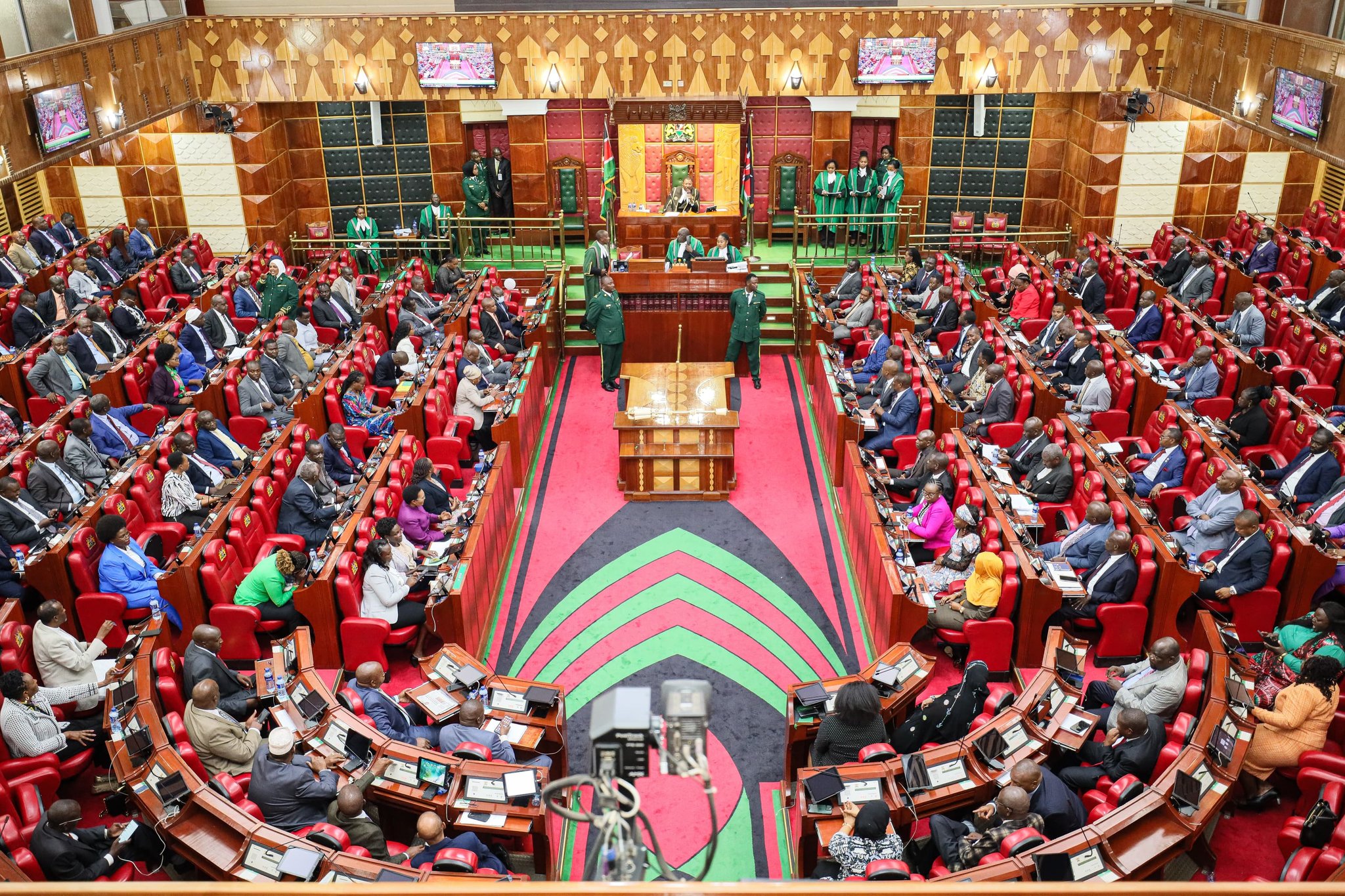Machogu drops grading of KCPE exam candidates
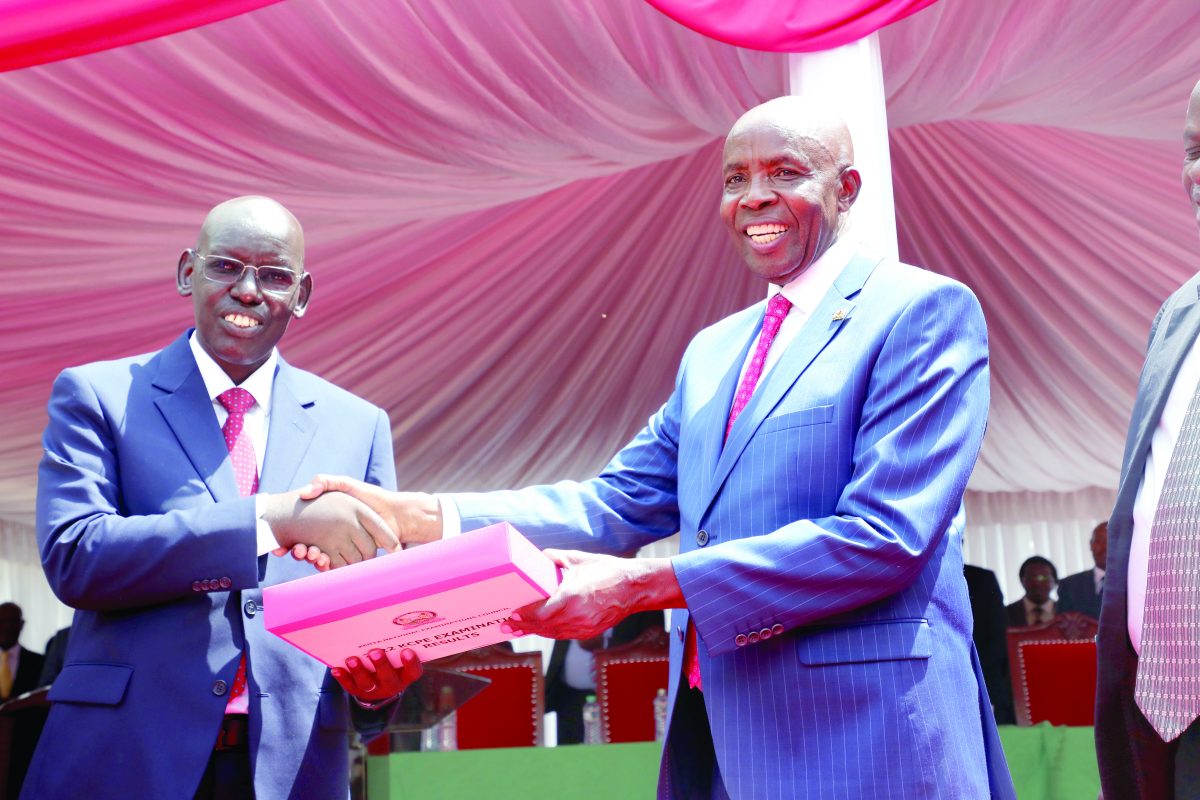
Otieno Lewis Omondi Glen and Fwaro Makokha Robinson are the top students in the 2022 Kenya Certificate of Primary Education (KCPE), having scored 431 out of the possible 500 marks.
Lewis was a candidate at St Peter’s Mumias Boys Primary while Makokha is from Christ the King Academy Bungoma.
Speaking moments after the release of the results, Lewis, 14, was ecstatic over his stellar performance, saying that it had been achieved through hard work and his dream to join Alliance High School has come to pass.
“It is through hard work, cooperation from parents and teachers and God’s grace that I have managed to achieve these results,” said Lewis, 14, shortly after the results were announced yesterday.
In an interview with People Daily, Omondi said he aspires to become a structural engineer.
“I have always wanted to be a structural engineer even though my best and the favourite subject was Kiswahili,” he said.
Education Cabinet Secretary, Ezekiel Machogu released the results, the first of its kind since he did not name the top performers as has been the norm.
It has emerged that there will no longer be grading of learners, as part of managing high stakes from some categories of schools and causing unnecessary anxiety.
“I am today standing before you, to make perhaps my most significant address to the nation since President William Ruto appointed me Cabinet Secretary for Education nearly two months ago. Over these two months, I have taken time to personally consult widely about the status of our education sector, which is arguably one that attracts interest from every household. For in every home, there is a child,” said Machogu.
Exam anxiety
More importantly, he said, his appointment immediately threw him into the deep of the sector, with the national exams season lurking and the need to clear the muddle that was the Grade Six cohort’s transition to Junior Secondary School (JSS) under Competency Based Curriculum (CBC).
The departure from grading learners was well received by a section of stakeholders.
Kenya Union of Post Primary Education Teachers (Kuppet) Secretary General Akelo Misori said it is a move in the right direction.
“Grading brings unnecessary competition and exam anxiety,” said Misori.
He was, however, disappointed that results for the Kenya Primary School Education Assessment (KPSEA) were not released.
“Grade Six results were not released and this means that the government has not given this cohort of candidates the quality of what we expected. We had expected that these candidates sat under the same environment as KCPE and the Minister ought to have given them more attention because it had caused a lot of anxiety among parents,” he said.
Kenya Private Schools Association chairman Charles Ochome also described the departure from ranking learners as welcome.
“One departure that I have noted is that he has not ranked the students. I believe that was intentional which will make the children not panic and bring sobriety in the sector,” Ochome said.
JSS classes
At the same time, Machogu said all the candidates will be admitted to Form One in line with the 100 per cent transition policy.
“There should be no case of any parent or guardian keeping their children at home when admissions to Form One are opened,” he said.
Since JSS learners will no longer be joining secondary schools, the newly constructed classes that were initially meant for them are now available to ease strained infrastructure in high schools.
“We, therefore, expect to have a relatively peaceful path to the achievement of the 100 per cent transition policy of government during the Form One admission next year,” Machogu stated.
The Form One selection for all categories of schools will be concluded on January 16.
According to this year’s data, four counties had a significant entry of more male than female candidates namely Turkana, Garissa, Wajir and Mandera.
Marsabit, Isiolo and Meru had a significant entry of more female than male candidates in the exam.
The number of candidates who sat the exam in hospitals in 2022 was 147 compared to 166 in 2021.
Machogu said that the number of registered candidates who were 12 years and below declined from 33,627 in 2021 to 31,498 this year indicating that parents and schools are on the right path of enrolling children in school at the right age.
Counties which had the highest percentage entry for candidates who were 12 years and below were Baringo, Wajir, Kericho, Bomet, and West Pokot while the highest number of candidates were in the appropriate age bracket of 13-15 years, the numbers at 885,162, a trend that has been replicated in the last five years.
Counties with the highest percentage of candidates aged 18 and above were Garissa, Turkana, Kilifi, Kwale and Mandera.
“Overall performance improved compared to 2021 despite the difficult situation that faced this cohort of candidates. The mark of the highest candidate rose four points from 428 in 2021 to 431 in 2022,” said the CS.
According to Machogu, data analysis shows that more than half of all candidates who sat the examination, 619,583 or 50.22 per cent scored between 200 and 299 marks compared with 578,106 who scored the same marks in 2021.
Special needs
“We are very impressed with the examination class of 2022 for performing very well and raising the standards of the mean performance. Whereas 1,170 candidates scored between 01 and 99 marks in the 2021 KCPE, that number has gone down to only 724 this year despite the rise in overall candidature in the two years,” the CS explained.
He also lauded 39 candidates with special needs who scored 400 marks and above compared with two in 2021. The first candidate with special needs scored 419 marks more than the top candidate in 2021 who scored 417.
Some 9,443 candidates scored 400 marks and above, 307,756 others scored between 300-399, some 619,593 candidates scored between 200-299 and 296,336 scored between 100-199 marks.
Gender gap
Overall, four papers recorded an improvement in performance this year namely English Language, Kiswahili Lugha, Kiswahili Insha and Kenyan Sign Language.
Six papers, English Composition, Kenyan Sign Language Composition, Mathematics, Science, Social Studies, and Religious Education, however, recorded a drop in performance compared to 2021.
Female candidates performed better than their male counterparts in English, Kiswahili and Kenyan Sign Language while male candidates performed better in Mathematics, Science, Social Studies and Religious Education.
“I wish to direct the Quality Assurance and Standards to find ways of addressing the gaps that might be causing the performance of either gender as there seems to be a pattern where girls beat boys in specific subjects each year and vice versa,” the CS stated.
He said that 252 candidates in nine examination centres engaged in malpractices.
The candidates were awarded zero marks in the subjects where they engaged in malpractice. “Nonetheless, the affected candidates’ overall mark will be computed less the mark awarded in the affected subject. The candidate will receive their examination results and will transition to secondary school,” he said.

